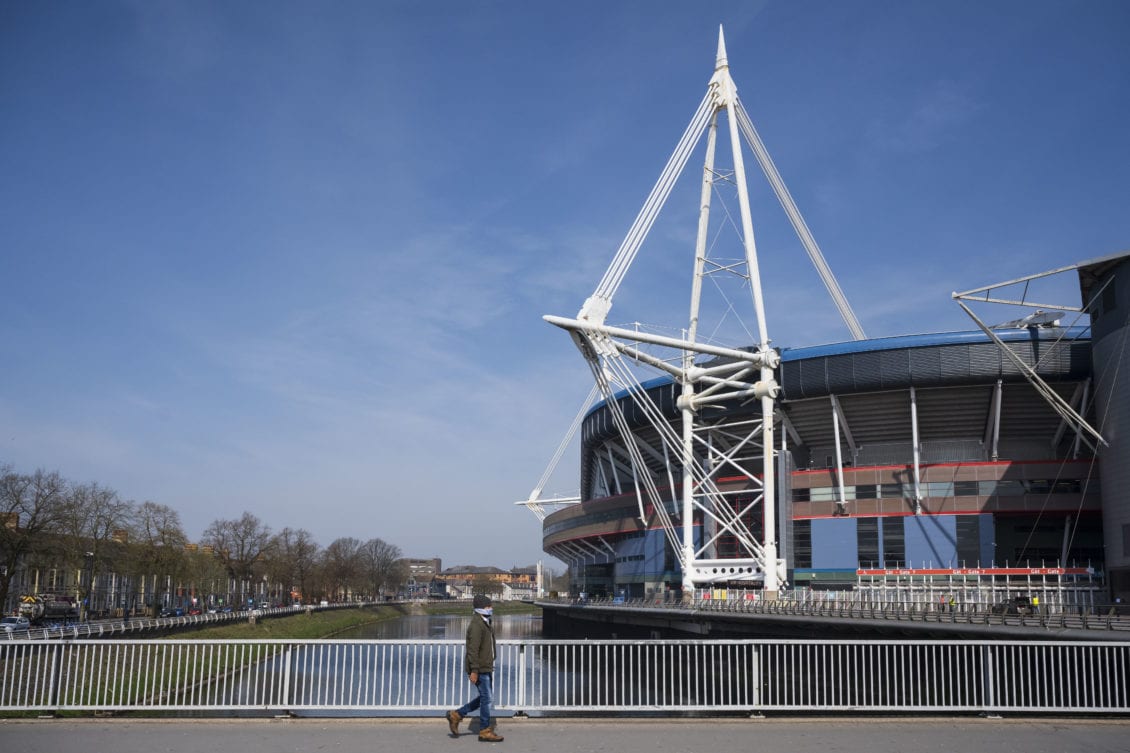Familiar faces from the rugby world were given a work-out at Sardis Road last week, when they faced stiff competition from a community group doing wonders for physical and mental health in Cwm Taf.
Former Wales captain Ryan Jones and Scrum V presenter Phil Steele joined in a tournament at the Pontypridd RFC ground following the success of a walking rugby project, which is supported by the Taff Ely primary care cluster and has attracted the support of the WRU.


Four teams braved a near-freezing pitch in the hour-long tournament, including Ryan, Phil, USW Women’s Rugby, Cambrian and Play It Again Sport. The tournament was part of 20 weeks of coaching by the WRU and is hoped to be the start of the development across Wales of walking rugby, which is being recommended by healthcare professionals to patients in Cwm Taf as a new form of exercise.
[aoa id=”1″]
Three-times Grand Slam winner Ryan joked it was the only time he’d lost at Sardis Road. “It’s great to see men and women here, and from a wide range of ages, playing rugby in its purest form,” said Ryan, now head of rugby participation at the WRU. “Please spread the word about this fantastic initiative as, once you’re in the rugby family, you’re always in the rugby family.”
BBC Wales presenter, after-dinner speaker and former Newport RFC player Phil added: “This is such a fantastic initiative for people of middle age who’ve lost that camaraderie. It’s a great way of socialising for players who had given up the game in their 30s. When you stop playing you miss that buzz and the routine of training. What you can’t get outside of rugby is the mickey taking and the banter, but walking rugby keeps that going, as well as being a great cardio workout.”
[/aoa]
Walking rugby is a collaboration with Shednet, which has established Men’s Sheds for men over the age of 50 to get together, share interests and support each other. The sessions are held every Thursday from 11am to 12 noon at Sardis Road, with numbers growing throughout 2018 under the organisation of Paul Nagle. Some members have been told about the group by their GP or another health professional, while anyone is welcome to just turn up on the day and join in.
Pontypridd RFC commercial manager Emma Rogers said: “It’s fantastic for us from a community aspect that this tournament can attract these guys. It gives them a feeling of belonging and their own little community, not only at the club for one hour a week but also on social media, where they have that support all week.


“They all have different stories and I find it very humbling to listen to the effort it can take them to get here. Walking rugby has so many health benefits; mental health and physical. It’s about breaking down barriers of isolation and loneliness, and giving people an outlet to make friends. “The project is going from strength to strength. There’s an increase in numbers every week and the guys are out there in all weathers. There’s a real team spirit as they don’t want to let us each other down, and the health aspect is fantastic as it gets them moving. Walking rugby should be prescribed!”
Taff Ely cluster primary care development manager Janet Kelland added: “With initial support from the Taff Ely cluster, this is very much about a community partnership with Pontypridd RFC and we’re delighted that the WRU is now involved. Communities benefit from being able to pick something like this up and do it their way, without being told how to do it, and with Paul’s development the walking rugby project has become self-sustaining.
“Walking rugby is available for everyone, of all ages, and particularly allows men to get involved at an older age. Some have played previously and it’s a way of getting back into the sport, and others are having their first taste of rugby. They come for the physical activity and to improve their fitness; some men who could initially play only for five minutes are now playing for 10 minutes or more. But it’s much more than that. Some of the members are carers who need a break from their caring responsibilities. They tell us they can talk to people here in a way they can’t at home. Tackling loneliness is a by-product of that, which in turn improves health and wellbeing.”







Leave a Reply
View Comments